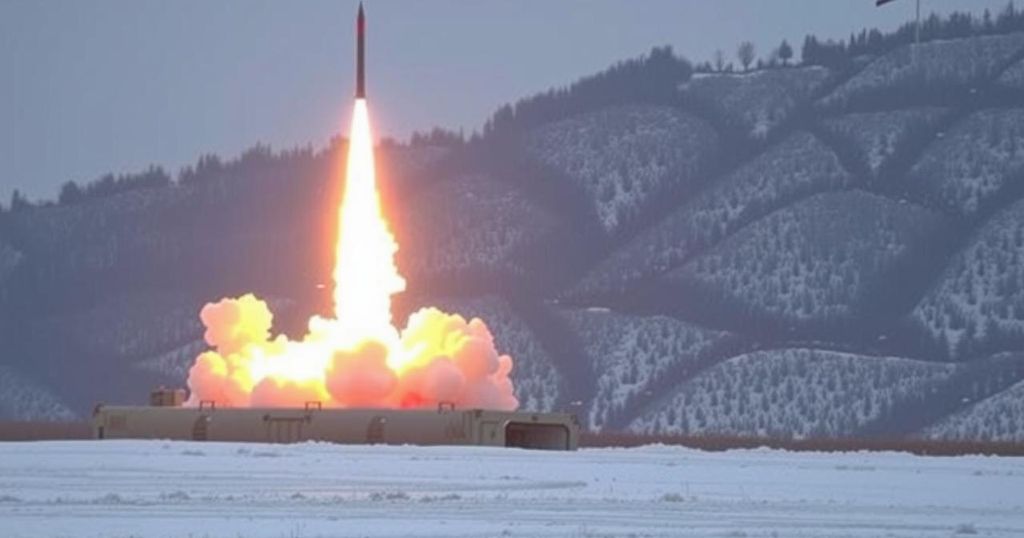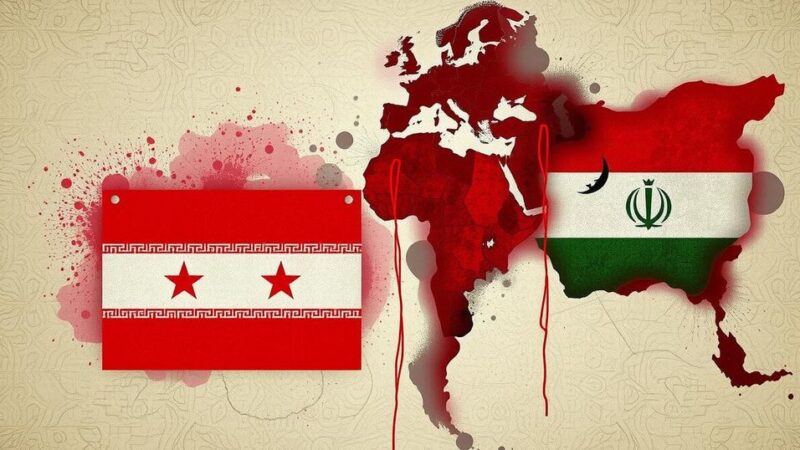North Korea launched a ballistic missile test on Monday, marking its first since Trump’s reelection. The test underscores ongoing tensions with the U.S. and aligns with recent North Korean disdain for South Korean politics and military alliances among Western nations. The regime continues to elevate its military stance amidst internal challenges, signaling a firm stance against perceived threats.
On Monday, North Korea conducted its first ballistic missile test since President-elect Donald Trump was re-elected. This launch marks a continuation of Kim Jong Un’s defiance, indicating that there may be no intention to foster a more amicable relationship with the Trump administration compared to prior interactions with President Biden. The recent test follows a North Korean party meeting that condemned alliances among the United States, Japan, and South Korea, describing them as a “nuclear military bloc.”
During this annual meeting in Pyongyang, leaders of the Workers’ Party of Korea articulated their stance, asserting that the circumstances dictate a clear direction for the country. Reports suggest curtailing international collaborations and reaffirming North Korea’s military capabilities as concerns with Western nations escalate following the deployment of troops to support Russia’s activities in Ukraine.
Furthermore, tensions have also risen with South Korea, which North Korea condemned for its perceived anti-communist stance, particularly referencing President Yoon Suk-Yeol’s martial law efforts. North Korea’s state media criticized this political maneuvering, labeling it as indicative of vulnerabilities experienced within South Korean governance. This commentary emerged in response to a failed martial law declaration, which prompted South Korea’s legislature to subsequently impeach President Yoon, with the decision pending judicial review.
The missile test conducted by North Korea is part of broader tensions in East Asia, especially regarding the military strategies of the Kim regime amidst international scrutiny. Following the elections in the United States and South Korea, North Korea appears unabated in its missile programs, reinforcing its long-standing military capabilities as part of its defense strategy. The dynamics between North Korea, the U.S., and its regional allies, such as South Korea and Japan, continue to evolve, influenced by geopolitical shifts and internal political crises within these nations.
The recent missile launch test by North Korea signals a consistent defiance of international pressures and a commitment to strengthening its military posture. The comments from Kim Jong Un’s administration reflect a strategic aversion towards diplomatic engagements with the United States while criticizing the political situations in South Korea. As the international community observes these developments, the implications for regional stability and the potential for escalated tensions remain significant.
Original Source: www.foxnews.com







